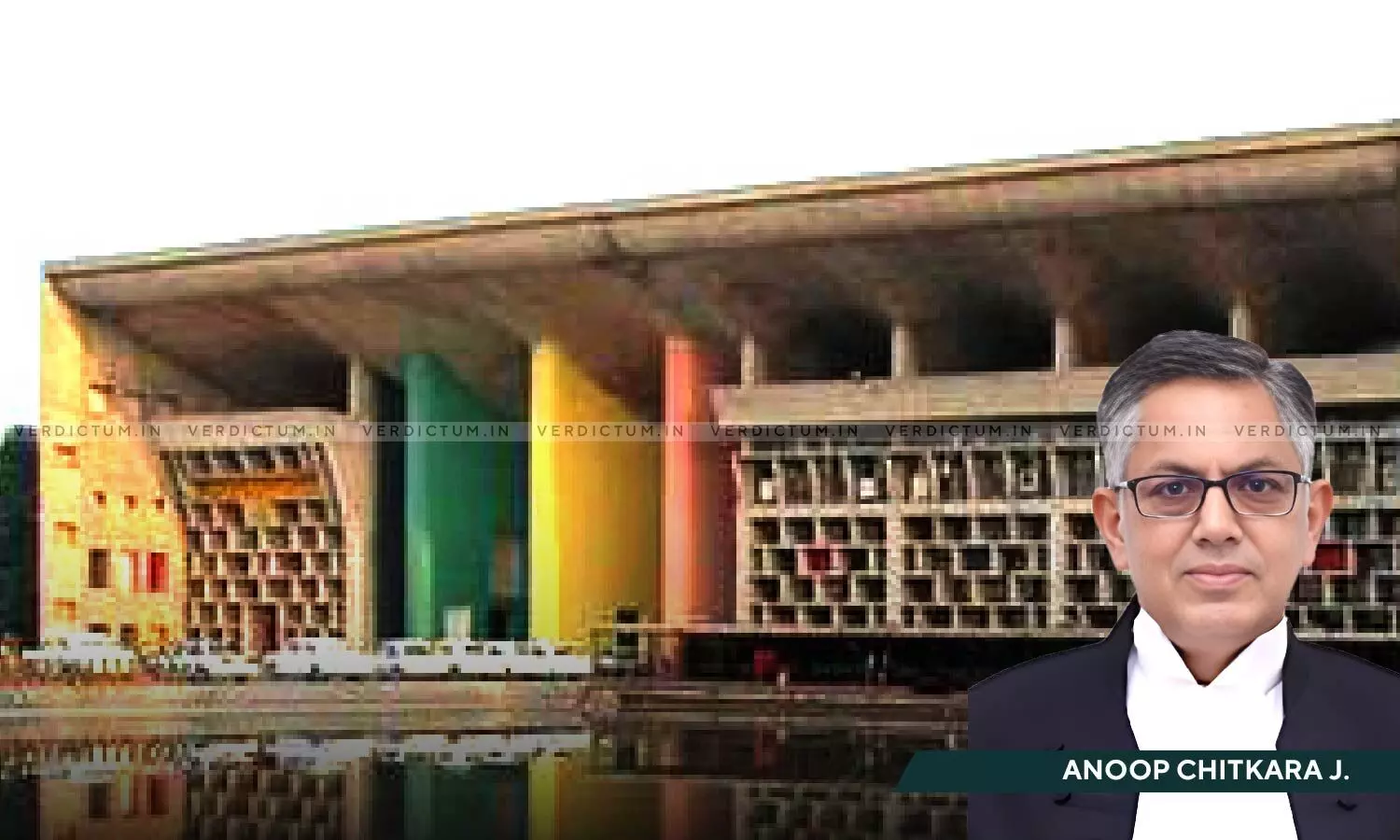
SC/ST Act Offence Not Established Merely Because Informant Is A Member Of Scheduled Caste: Punjab & Haryana HC Quashes FIR Against Journalist
 |
|The Punjab and Haryana High Court quashed an FIR against young female journalist Bhawana Gupta, working for Times Now, on the ground that the offence under Scheduled Castes and Scheduled Tribes (Prevention of Atrocities) Act, 1989 (SC/ST Act) is not established merely because the informant is a member of Scheduled Caste, unless there is an intention to humiliate.
The Court was dealing with a petition filed by the journalist under Section 482 of the Criminal Procedure Code (CrPC) seeking quashing of an FIR registered against her.
A Single Bench of Justice Anoop Chitkara said, “Whether there was intent to insult or humiliate by using the word 'Chamar' will of course depend on the context in which it was used.1 Offence under the Act is not established merely on the fact that the informant is a member of Scheduled Caste unless there is an intention to humiliate a member of Scheduled Caste or Scheduled Tribe for the reason that the victim belongs to such caste.2 There is no evidence to show that the offence was committed only on the ground that the victim was a member of the Scheduled Caste and therefore, the conviction of the appellant- accused under Section 3(2)(v) of the Scheduled Castes and Scheduled Tribes (Prevention of Atrocities) Act is not sustainable.”
Senior Advocate R.S. Rai appeared for the petitioner while Addl. A.G. Gaurav Garg Dhuriwala and Advocate P.S. Ahluwalia appeared for the respondents.
The journalist asserted that even if the allegations are taken as a gospel truth, she had no intention or mensrea to abuse the complainant knowing that she belonged to the Scheduled Caste community with the words attributed to her, because she was visiting the said location for covering a political event, had never met the complainant in her life, and was unaware of her caste, as such there was no question of violating Section 3(s) of SC/ST Act. The prosecution’s case was based on the statement made by a lady, which led to the registration of the FIR.
The State had filed its reply on September 29, 2023 through the affidavit of the concerned Assistant Commissioner of Police, Emergency Response-cum-Nodal Officer, the Scheduled Castes & Scheduled Tribes (Prevention of Atrocities), Act, 1989 [SCSTPOA]. The journalist had filed her rejoinder to the reply. The complainant also filed her reply in October month. Opposing the quashing, the State contended that the investigation was continuing, and if the Court quashes the FIR, it would be throttling the investigation.
The High Court in the above context observed, “It would be a travesty of justice to arrive at a finding of a prima facie case that the petitioner, who was not driving and was a passenger, had caused impact with the vehicle with the intention or knowledge that the driver will cause an accident, the phone that the victim might be carrying would fall, which in turn would cause a loss of more than Rs.50. Thus, by such an imagination, the ingredients of mischief could not have been invoked against the petitioner. Even if all allegations of causing damage to the phone are taken to be truthful, it will not constitute any offense against the petitioner, punishable under Sections 279, 337, 427 IPC; as such, the FIR for an offense under Sections 279, 337, 427 IPC are, as a result of this quashed and set aside.”
The Court further noted that it remains undisputed that the accused/petitioner had no personal knowledge of the victim's or her family's caste and as such, the court cannot presume that the she was aware of the victim's caste or tribal identity. It added by saying that, the primary burden was on the complainant to establish this knowledge, which they did not state and neither the State nor the complainant mentioned that she was aware of the victim's caste, and hence, their conspicuous silence speaks more than the words.
It, therefore, concluded that it is a fit case where the continuation of criminal proceedings shall amount to an abuse of the process of law and hence, invoked its inherent jurisdiction under Section 482 CrPC.
Accordingly, the High Court allowed the petition and quashed the FIR against the journalist.
Cause Title- Bhawana Gupta v. State of Punjab and Another